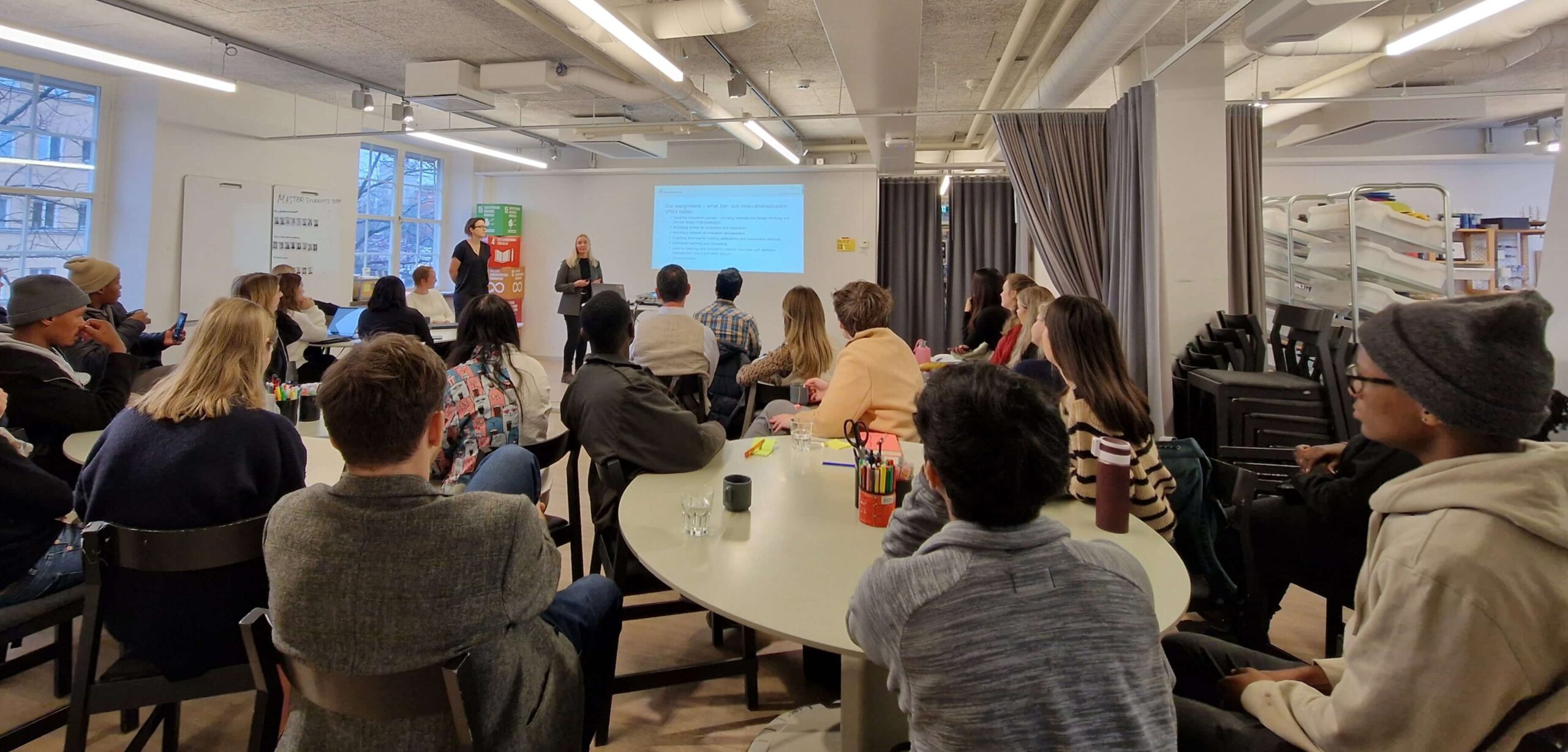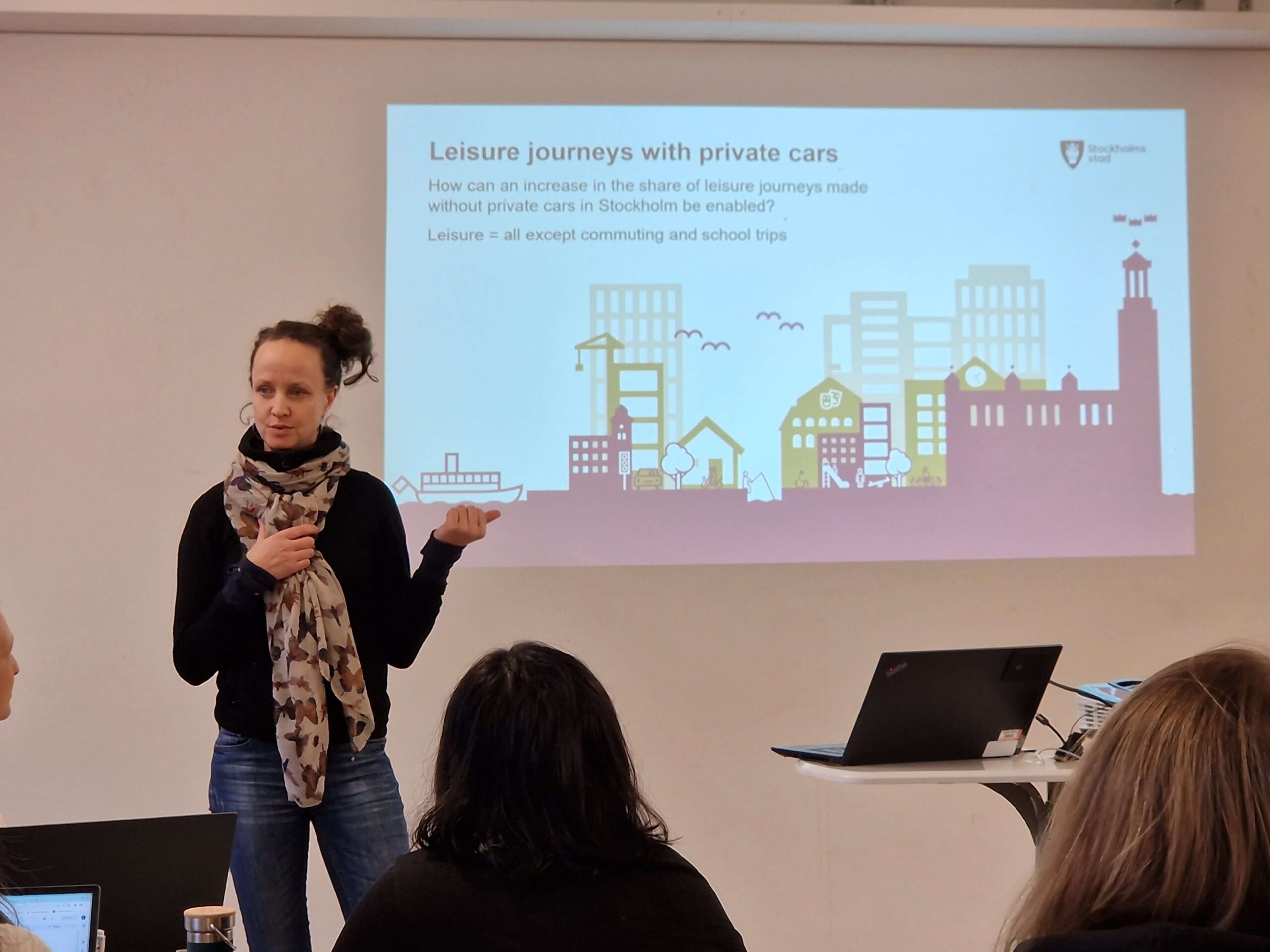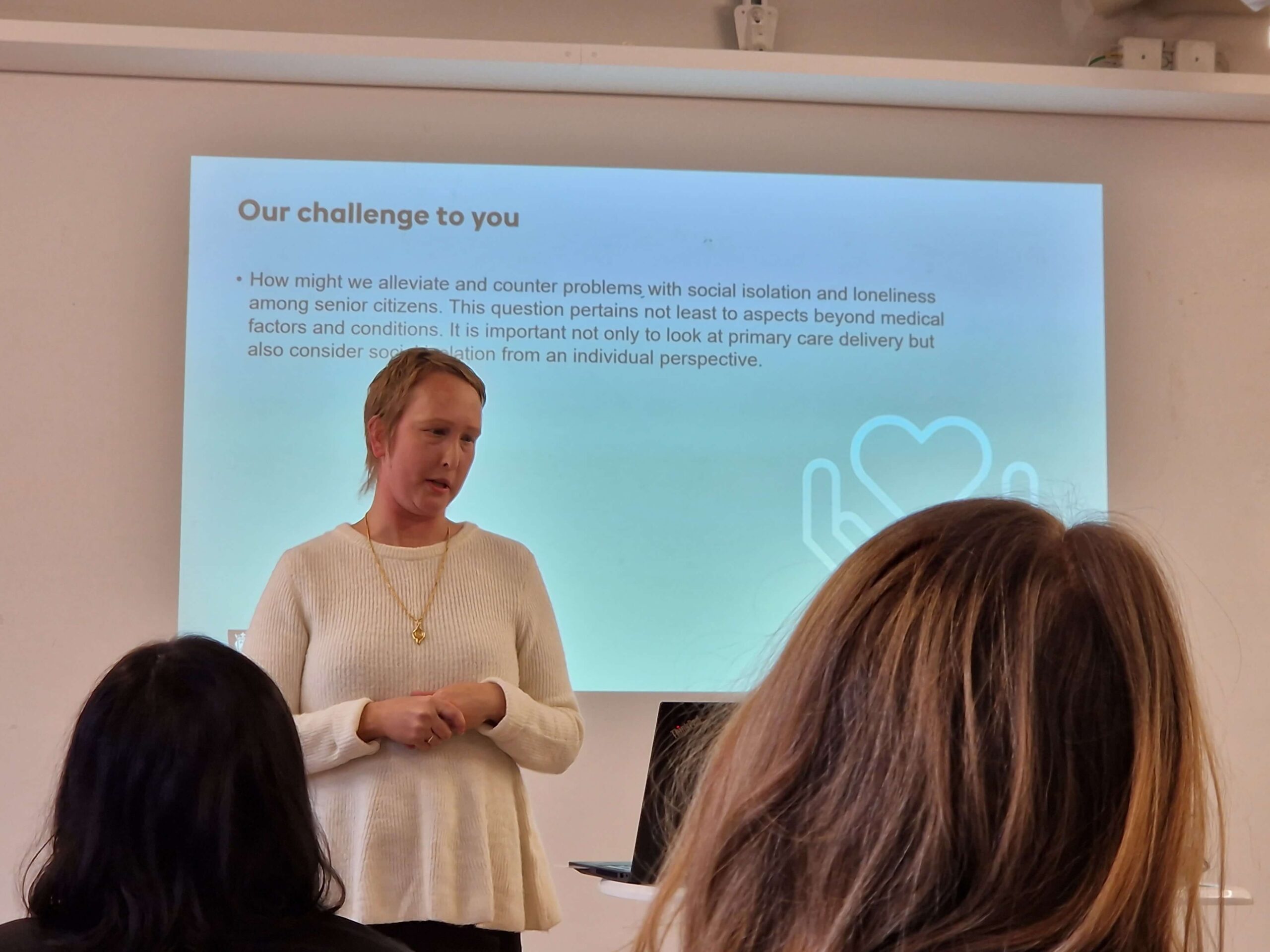Car travels, loneliness and innovation culture – New student challenges

New master’s course challenges, Spring 2024
Getting an outside perspective can shed new light on a challenge. Three real-life challenges from the public sector in Stockholm have been handed over to students in Openlab’s master’s course. Our students will work in interdisciplinary teams, applying a user centered approach as they explore aspects of the problems and possible innovative solutions.
The design thinking process provides a framework as both method and mindset of curiosity, creativity, user-centrism and experimentation.
Present at Openlab to introduce the challenges were Anna from Miljöförvaltningen, Stockholms stad, Cecilia and Anna from SLSO, Region Stockholm and Carin from Skärholmens stadsdelsförvaltning.
#1 Leisure jorneys by car
Miljöförvaltningen, the Environmental administration, in Stockholms stad presented a challenge that has bothered them for quite some time. They want to enable that more leisure journeys in Stockholm are done with other modes of transport than by private cars.

Leisure journeys (defined as all trips except commuting to work or school) make up for a large part of car travel in Stockholm. There are a nummer of environmental targets in Stockholm relating to the challenge, such as reducing car traffic and becoming a fossil-free and climate positive city. Reducing the share of leisure journeys by car is an important nut to crack in order to reach the goals.
What can be done, either before, during or after a jorney to encourage other ways of traveling than by car?
#2 Involuntary loneliness among seniors
The second challenge was from Skärholmens stadsdelsförvaltning.
In Skärholmen, as in many other parts of Stockholm and Sweden, decreasing involuntary loneliness among seniors is high up on the agenda. Skärholmen is a young part of Stockholm, with a multicultural and hence multilingual population. In the presentation we heard a story about an elderly care home in Särholmen where 80 languages were represented among the staff.

Cultural and linguistic differences were mentioned as two of the challenges within the challenge, alongside physical limitations and digital exclusion/low ICT literacy (how comfortably they use smartphones, computers and other devices). Socio-economic aspects also require that inclusive services and activities provided by the municipality need to be free of charge.
#3 Innovation culture and support
Finally, Idè- och innovationsslussen at SLSO presented their challenge.
Stockholms läns sjukvårdsområde, SLSO, is a large organisation under Region Stockholm’s umbrella. SLSO provides healthcare in primary health centres, youth clinics, midwifery clinics, habilitation, psychiatry, somatic specialist care, and more.
With 12 000 employees they are Sweden’s third largest employer within healthcare.

Idé- och innovationsslussen (the ideas and innovation gateway) offers courses and activities for SLSO employees and managers, with the aim of supporting innovation, ideas and development. But are they offering what is wanted and needed, or should they do things differently?
Their challenge was phrased “How can we at Idè- and innovationsslussen contribute to a culture that promotes innovation within SLSO so the employees feel that they get the support they need and want, based on the resources we have?”
…
Thank you so much to all the presenters for important challenges that got the students engaged and curious to find out more.
We are very much looking forward to the insights, conclusions and solutions from the students!
If you are too, feel free to join the student’s half-time delivery on March 14th, and the final delivery on May 23rd, all open to the public.